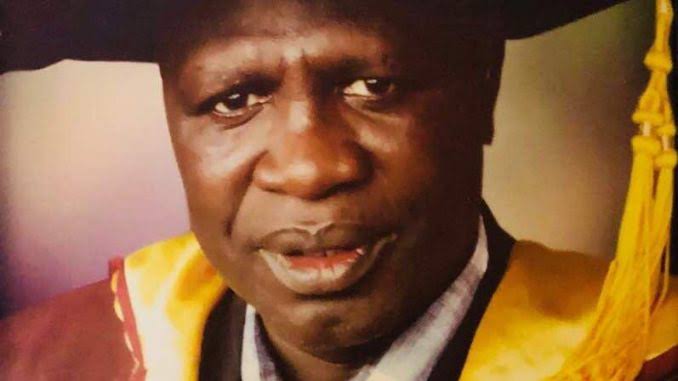Column
Re: Israel-Palestine Conflict: Two-State Solution or Unending War, by Prof MK Othman
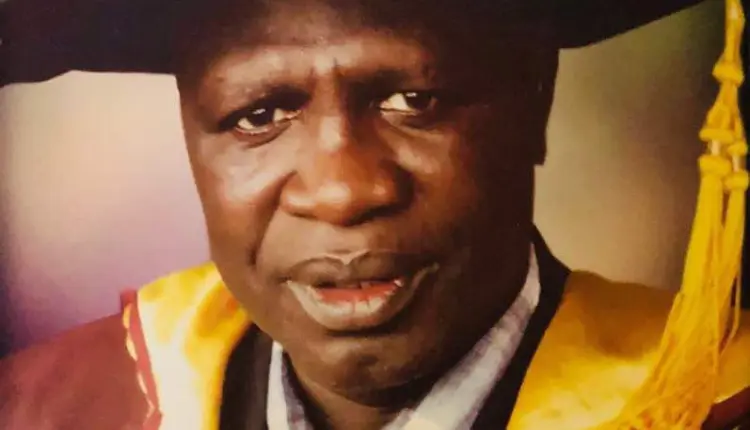
Re: Israel-Palestine Conflict: Two-State Solution or Unending War, by Prof MK Othman
As a peace-loving man, I hate to see blood spilling, no matter whose blood. In the last two weeks, I have had to close my sensitive organs against the news of Israel’s war on Gaza to avoid developing high blood pressure.
The World is watching a calamitous pogrom against the defenseless Gaza people in the name of fishing or wiping out Hamas, and nothing much is done to arrest the situation. Israel is applying the law of disproportionate revenge against the Hamas attack of October 7, 2023, thereby jettisoning the enshrined principle of proportional justice in the Holy Book phrase “An eye for an eye.” 1,400 Israelites were the estimated victims of Hamas’s October 7th attack, but as of last week, Gaza’s Ministry of Health estimated the death of over 11,000 Palestinians with more than 27,000 injured people in Gaza, and the counting continues.
Most of the victims of the Israeli deadly missile attacks are women, children, and older people. Daily, the number of deaths and injured has become a mere input to graphical, tabular or numerical statistical expressions. Of course, disproportionate revenge law application is not peculiar to Israel; its closest ally, the USA, is similarly guilty because of 9/11. On September 11, 2001, 19 al-Qaeda terrorists launched attacks in New York, Pennsylvania, and Virginia, resulting in the deaths of 2,977 people. USA and allies went on the revenge mission in Iraq and Afghanistan, where more than 300,000 military, police, and civilians paid supreme prices.
Read Also: Defence minister says military industrial complex ready soon
Is the revenge mission the answer against future attacks? Is coordinated and abrupt attacks on innocent people a solution to injustice and inequity being perpetrated by the powerful to the weak? Attacks from both sides are inimical to peaceful coexistence with heavy prices while subjecting innocent souls to the trauma of injuries, deaths, and displacements. World leaders must take decisive action on these burning issues for peace to prevail otherwise we may end up in soup.
My article on the above subject attracted many reactions for and against. I am presenting a few of such reactions as reflections of people’s opinions. Happy reading:
May God reward Prof Othman for concern over this seemingly “unending” war. The war is part of the destiny of human beings on Earth, but it has an end very soon. God in his wisdom has created man. In the metaphysical World, before coming to this physical World, God gave all creatures a choice between granting some free will or pure subservience to Divine ordains. All creatures rejected freewill but man. So, man is guided in two ways: Obedience versus disobedience. There is a day of accountability in the metaphysical World. In His mercy, the Almighty sent Prophets to remind humanity of His covenant with his Lord. God made lots of favors to Banu Israel (Children of Jacob).
There were many Prophets among them. However, they turned ungrateful. The curse of the Almighty and some of their Prophets befell them. They were given the last chance when the seal of the Prophets came. Yet they transgressed. They had a peace covenant with this last PROPHET, but they breached it. That was why they were driven out of the environs of Medina.
At this juncture, let me point to the fact that these Zionists will never allow a peaceful two-state solution. Even if they pretend to accept any truce initially, they would breach it the soonest. So, the issue is that these people have maintained their hard-heartedness and transgression in addition to the curse of Allah, which has been affecting them. They became alien human beings throughout contemporary history.
They would never possess a land of their own. Check the history of their expulsion from individual European countries. Check their somewhat exaggerated holocaust by Hitler of Germany. They exaggerated it to attract sympathy when they wanted to occupy Palestinian land. They used terrorism and banked on the support of Britain and the hypocritical stance of the League of Nations to occupy Palestine. And this was by design.
Of course, they have been living and terrorizing Palestinians for almost 75 years now; they know now more than ever before that Israel’s apartheid state will crumble. The trend now is that not only Hamas, Qassam brigades, etc, but the whole axis of Resistance against American cum Western European hegemony is at war with Israel. The tug of war will continue. It may subside for some time when there comes a ceasefire agreement. But only to be kindled again.
All parameters on the ground indicate this carcinogenic state’s final destruction. It will crumble with its supporters, the USA and the West. The World will then see justice and harmony after it has been filled with injustice, insecurity, tyranny, and transgression. This change is around the corner, God willing.
Dr. D. Nalado Dangora
Greetings Prof M. K. Othman
I read your back page article on National Dailies Blueprint titled; ISRAEL-PALESTINE CONFLICT: TWO STATE SOLUTION OR UNENDING WAR?
You seek to make your readers believe that the problems originated in 1948 when Palestine land was divided and used to create the Jewish State of Israel. You did not recognize that the Jewish state of Israel had ever existed in human history until the 1948 declaration of a new Israel as a state recognized by the United Nations after 400 years of Ottoman destruction and occupation of Jewish and Israeli territory as the Arab Islamic Empire.
As your name implies, if I am not mistaken, you maybe by name an affiliate of Ottoman Islamic rulers, The Turks of the Ottoman Empire, that annihilated and conquered the Jewish State of Israel and ruled the area as the Islamic Arab Empire of Palestine for about 400 years before their fall in the World War I and the possible creation of New Israel State after the Holocaust by Hitler and Nazi against the Jewish People in World War II.
The new and enduring Israel and Jewish State today was created by British mandate in 1948, which was rejected by all Arab nations and Palestine.
You also failed to let your readers know that all the Arab nations and Palestine rejected the two-state solution as proposed by the United Nations Assembly in 1948, and they fought Israel together in 1949 and were defeated. From 1948 till date, Israel and Arabs, including Jordan, have fought about seven wars, and the agenda is to destroy the newly created Israel Jewish State and declare all Arab territory. They seem to be returning to a two-state solution because they could not win the wars as intended.
Your proposed 2-state solution and possible division of Jerusalem into east and west Jerusalem, one for Arab Palestine and the other for Jewish Israel, as a room for peace in the Middle East, is just lip service as such, cannot bring peace until, the Jihadist Islamic Agenda of achieving No Jewish State of Israel and declaring all the land an Arab controlled Islamic area is concluded perhaps in the next World of illusions.
What I see in the Middle East is a human blood sacrifice where the Islamist terrorists use civilians as human shields to advance their extreme religious objectives instead of protecting the Palestine people with their weapons in every conventional war. Yet, they blame Israel for any death of any civilian and get donations around the World by playing the victims card against Israel as if Israel does not have the right to self-defense when attacked as a nation and people.
The level of peace achieved presently between Israel and Palestine in getting an independent state of Palestine has gone a long way but now drastically reversed by the present Hamas Attack on October 7 on Israel, killing about 1400 Israelis and kidnapping more than 200 civilians and children to get human shield in their Hamas bunkers.
You are a Prof and student of history. Still, at times, sentiments of religion or tribe or political affiliation may affect even scholars in their sense of judgment as they seem to take sides in a conflict by bringing a narrative to support their prejudice and win the audience to themselves, especially in their political correctness fueled by hypocrisy.
CNC
Thanks, Sir, for the insightful analysis. However, this adds to several other perspectives highlighting that violence will never beget peace. It is there written in the books of history. Blood will only continue to flow; cold-hearted Palestinians will continue to harden as more are flattened. It is a cycle.
The American foreign policy, and by implication the Western policy, regarding the Middle East will likely stay the same for a while. We do not need to be taught that in a classroom. Meaning blood will continue to flow with no end in sight. Events that preceded the previous WWs point to a similar trajectory we currently witness.
As events unfold, with each day yielding different tunes since October 7, we must keep praying that, as we believe in miracles, one day, to our dismay, a miracle that brings lasting peace will eventually come down to Mother Earth.
Dr Mohammed Makeri
Re: Israel-Palestine Conflict: Two-State Solution or Unending War, by Prof MK Othman
Column
Is Nigeria Worth Calling a Country?
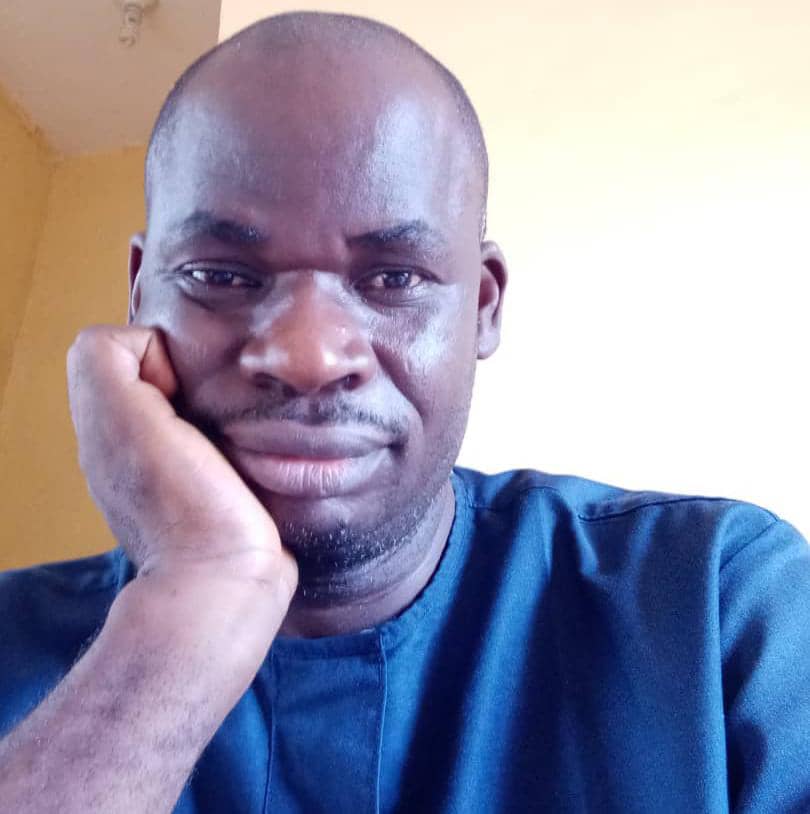
Is Nigeria Worth Calling a Country?
By Sunny Awhefeada
The harsh and disparaging title of this essay was uttered by a sixteen year-old girl, fresh out of secondary school. It was her response to her mother’s correction on a family whatsapp platform that the name of a country should be spelt with an initial capital letter. After thanking her mother for the correction, the lass fired the salvo, “Is Nigeria worth calling a country?” The worried mother then realized that the daughter’s scripting of Nigeria as “nigeria” was a deliberate act of negation and revolt against a country that has anguished her generation. What followed the girl’s query was an attempt by the parents to talk her out of her grievances against Nigeria. The parents were shocked to discover that the girl was not alone. She spoke the mind of her siblings. Father and mother discovered in the ensuing conversation between parents and children that they held inveterate grudges against Nigeria. They chuckled and abjured patriotism. Their thoughts and eyes are trained on Europe and America. To them, Nigeria was not the place to be.
Read Also: Missing 12-year-old boy found dead with missing eyes, wrists in Ogun
Growing up and up till about ten years ago, not many young people wanted to leave Nigeria. Leaving secondary school, many of us sat for the Joint Admissions and Matriculation Board examination and secured admission into universities. At the university, we looked forward to graduating and working in Nigeria. Despite the hostile and abrasive reality of military dictatorship, many of us were hopeful that “everything good will come”. The lure of “japa” was then largely a Benin phenomenon which was prevalent among those who didn’t get into universities. And as students of the University of Benin, only an inconsequential few thought of leaving the country. During the early years of return to civil rule, although characterized by many oddities, our young people still hoped that good times were around the corner. Unfortunately, that hope was ruptured and in the last eight years the idea of leaving Nigeria became running away from Nigeria not just to Europe or America, but to anywhere, just anywhere.
Our youths are fleeing and they are doing so in droves. The number of reference letters my colleagues and I write every week for our former students seeking greener pastures abroad indicate that our best and brightest have lost confidence in Nigeria and are leaving in search of what they consider to be better places. Beyond our former students are other professionals, young and middle aged, family men and women, who are also fleeing Nigeria. We prefer to use the term relocating, but they are actually fleeing and escaping. They see neither hope nor a future in Nigeria. Many years ago, there was the tendency to scoff at those who left and describe them as exiles who could not live and compete in Nigeria. Today, those people are deemed to have been foresighted and fled long before the Nigerian house caught fire.
Nigeria has gravely wronged her citizens, especially the downtrodden who have been condemned to multi-dimensional poverty. If the objective of government is the security and welfare of the citizens, it has not been so in Nigeria in the last fifteen years.
Government caters only for those in government at the expense of the citizens. My generation and the ones before it knew what it meant to have a government, despite the many failures of the many regimes under which we grew up. But this has not been in the last fifteen years. No doubt, things were rugged in our younger days, but we were hopeful knowing and trusting that there was a tomorrow to look forward to. If we were hungry, we knew there would be food. Our homes, farms, markets, streets and roads were safe. We went to school, learnt and returned to our safe homes. Our public libraries catered for us beyond the school walls. We had doctors and nurses who attended to our health needs. Our roads were good and we had something close to regular electricity. When Lawrence Anini terrorized Benin, he was caught and his menace ended. We looked forward to the future. It was the inspiration that powered us in the struggle against military dictatorship.
The sixteen year-old girl and her contemporaries had not the least of the foregoing experience. The Nigerian narrative gets worse with each passing generation. The generation under focus was born into turmoil with a kind of trauma that is worse than what was experienced with the Nigerian Civil War. The girl’s generation was born into a frazzled landscape and where their parents are struggling against odds that defy solutions. They are seeing their parents sinking into agony and helplessness as they toil to make ends meet. Then from across the country, aided by digital media, they heard echoes and saw images of young people like them killed during the ENDSARS protests of October 2020. It was at that point that that generation and the one before it snapped and jettisoned Nigeria, first psychologically and now physically. The generation has disowned Nigeria.
Their grudge against Nigeria is legion. Besides, the state orchestrated killings that greeted the ENDSARS protests, the present generation now think that the nation holds no reprieve. The easy access to information occasioned by ICT daily inundates members of this generation with the cruel oddities buffeting Nigeria daily if not hourly. This is made worse by the harsh economic climate that has driven the poor beyond the worst margins of poverty. This generation abjured Nigeria because they knew what happened in the last general elections. Many of them saw the outcomes of the elections at all levels as not only a betrayal, but a robbery of their investment in hope. They resorted to “all eyes on the judiciary”, but the judiciary merely confirmed that it was an ass and no longer the hope of the common man. They recall the incidents at Buni Yadi, Chibok and Dapchi and they feel a sense of dread and gloom.
Troubled by poverty, diminishing opportunities and looming anarchy, they woke up on 29 May this year to hear of an unanticipated astronomical increase in the price of petrol. That incident jolted the nation and the citizens are yet to recover. Life is now being lived in deficit. These children now spend three days travelling from Warri to Lagos, whereas their parents did that journey in four hours. Their social studies book taught them that Nigeria is the world’s sixth largest producer of crude oil, yet petrol remains unaffordable. Electricity supply, good schools and health facilities have become motifs in folktales. These children are now daily hounded and robbed by security agents who dehumanize them. They hear of officials of examination bodies making false and indicting reports against their schools because the latter didn’t offer bribes. They hear of judges receiving fat bribes to confirm Niyi Osundare’s “My Lord, tell me where to keep your bribe”. All around them are hopelessness and indices of state failure. They hear of lawmakers buying expensive land cruisers for themselves while millions of citizens have no food to eat and are dropping out of school. Those who graduated from universities endlessly roam the streets without jobs.
The young girl had ventilated her feelings and rejection of Nigeria. But the parents gave her lessons in patriotism never minding how dire the situation has become. Every nation passes through rough patches. Nation building has never been a hundred-meter dash. It is always an ongoing project. And citizens engage the project with deliberateness insisting on how they want to be governed. Countries do not become great or better when the citizens flee from her. Nigerians must rethink options and fleeing must not be one of them. We must affirm that NIGERIA IS WORTH CALLING A COUNTRY!
Is Nigeria Worth Calling a Country?
Column
Katsinan Dikko: Beyond 100 Days and Matters Arising II, by Prof MK Othman
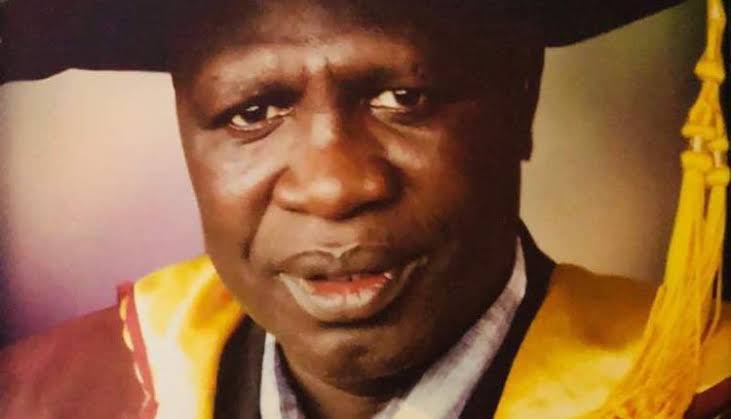
Katsinan Dikko: Beyond 100 Days and Matters Arising II, by Prof MK Othman
The economy is the second sector receiving priority attention, which interrelates and intertwines with security.
Economic activities are primarily agricultural in rural communities, which revolve around the crops-livestock interface as a significant source of livelihood for the people. The rural economy provides food, feed, fodder, and industrial raw materials that give an income stream to the citizens.
Consequently, the prosperity of this economy is gladdened as the security situation is enhancing around primary production locations. Alongside the economy, palliatives were provided to the needy, the weak, the vulnerable, and others down the social ladder. Dr. Dikko supervised the distribution and sharing of such palliatives with his presence in many sharing location centers for equity, justice, and fairness. What a marvelous lordship style. Guaranteeing security is an assurance to boosting the economy of the local communities, especially Gazette markets spread across the state.
Read Also: FG, LASG flag-off Third Mainland Bridge rehabilitation
These markets like Charanchi, Sabuwa, Dandume, Sheme, Kafur, and Kankara, among others, were seriously affected by the insecurity situation. Trade volumes running into billions of Naira were lost to farmers, merchants, and locals, as income streams and huge revenue base were lost for nearly a decade. What a pitiful situation.
From time immemorial, both Western and Islamic education were deep-rooted in the culture and tradition of the Katsinawa and Daurawa people. It was to the credit of Katsina Middle School that the founders of Northern Nigeria, including the first and only Prime Minister of the Federal Republic of Nigeria, Sir Abubakar Tafawa Balewa, had their early educational baptism in the school. Radda, with a Ph.D. in his kitty, made a zealous move in the Education sector; he enthusiastically enrolled the hitherto disengaged S-power volunteers through a strenuous competitive process that involved screening and computer-based examination for quality assurance. Yes, Dikko sieved the grains from chaps for effective performance in the education sector, thus employing 7,325 teachers of secondary schools. It was the biggest, single, and most deserving employment of personnel in the civil service since the state was created in 1987. What a marvelous feat that needs to be replicated by other states.
For effective management of the education sector and the desire to restore the glorious past, the Education Ministry was split into two independent Ministries – the Ministry of Higher Education, Technical and Vocational, and the Ministry of Basic and Secondary Education. While primary and secondary education deal with a foundation level of education, higher education, technical vocational ministry deals with intermediate and high-level workforce training and development in the state. In the same vein, Dikko approved the release of ₦2,7537,603 billion to construct seventy-five (75) Junior and Secondary Schools across all 34 Local Government Areas of Katsina State in response to demographic dynamics in the state.
Dikko paid over N640 million in scholarship allowance to over 47,000 Katsina state students studying in 126 higher institutions of learning within and outside Nigeria. Similarly, Dikko initiated a foreign scholarship for diligent students to study Medicine, Artificial Intelligence, and Bio-Economy to bridge the workforce gap in the critical disciplines and impact the socio-economic fortunes of the state.
Furthermore, he established three special model schools for talent-hunting and development in the three senatorial districts of the state. To incentivize the parents and motivate the final students of secondary schools across the state, Dikko paid over 360 million Naira for the registration of WAEC and NECO examinations. Additionally, Dikko approved over 260 million Naira to procure instructional materials to aid teaching and learning in primary and post-primary schools across the state.
The health sector was included as Dikko recorded some milestones. After his inauguration, he distributed 198 motorcycles to routine immunization officers and ward focal persons. He announced his plan to establish 361 clinics to enhance quality healthcare service delivery in the state. Similarly, he laid the foundation of a 16-bed dialysis center, the first of its kind in northern Nigeria, which will increase access and affordability for suffering kidney patients.
For the dialysis center, Dikko earmarked the sum of N761 Million, while another N599.9 million was approved for the upgrade of Faskari Comprehensive Health Center to the status of a General Hospital.
As an agricultural scientist, I have a soft spot and am sensitive to growth, development, and challenges 24/7. The agricultural sector in Katsina state has, over the years, shown greater potential to revolutionize the socioeconomic livelihoods of the people.
There is a large expanse of undeveloped and underdeveloped land sparsely available for ostensive utilization to produce crops under rainfed and irrigation. The land is blessed with plentiful surface and underground waters for irrigated agriculture. Studies show that most Katsina people are agrarian; less than 20% of irrigable land is cultivated and has a small agricultural productivity index. While these factors make agriculture a low-hanging fruit for Dikko to pluck to obtain instant results, the sector requires careful, knowledge-driven planning and execution to make it a viable venture.
Thus, in the over 100 days of Dikko, the governor came on board in the middle of the rainy season, and therefore only a little was done. However, the most outstanding agricultural issue is developing a 20-year irrigation master plan. In addition, there was a proposed bill before the State Assembly to establish a State Irrigation Development Agency.
It is hoped that attention will be given to this all-important sector. My article, “Sitting on a goldmine: Irrigation, a glorious future for Katsina state,” published in Blueprint Newspaper on 3rd May 2023, has addressed a key component of agriculture.
During the period under review, Dikko recorded a significant feat in the governance of the Local Government Areas by releasing their monthly federal subvention of 1.8 billion Naira for capital projects.
Evidently, one can notice the plethora of activities with respect to ongoing projects. Local government administration, as the third tier of government, is grassroots-based and thus closest to the people.
There are several other achievements, which time and space cannot allow me to x-ray, but there are also a few pitfalls.
The first was the dissolution of the service commissions whose members were yet to complete their tenure. Even at the federal level, President Tinubu dissolved university governing councils and commissions. This action violated the statutory laws which constituted such bodies. Another pitfall was the unseen hands of the government in making the leadership of the State Assembly, which weakens its power in oversight of the Executive Arm of Government.
The beauty of democracy is when all three arms of government, executive, judiciary, and legislative, which were constitutionally created as autonomous bodies, play their statutory roles of checks and balances without outside influence, visible and invisible, covert or overt. This brings the best dividends of democracy to the people, but not when one arm becomes a rubber stamp of the other. In Nigeria, the executive arm at both state and federal levels tries to woo the legislative arm by influencing the choice of “friendly” people to be the leaders of the legislative arm.
That is why the executive leadership violates the constitution and disrespects laws without hearing a fearful word called “impeachment,” thereby short-changing the people.
In conclusion, no doubt, Dikko has lofty ideas and plans to move Katsina state to Eldorado for the happiness and prosperity of the industrious and educated people of the state. Can he make it? As said earlier, he needs a visionary, dedicated, and hard-working team that shares his vision and aspirations and is ready to work to actualize his ideas and plans into tangible reality.
However, the assembly of such personalities takes a lot of work. It is because the governance in Nigeria is inundated with yes-sir men and women who know the truth and what needs to be done to achieve the desired results but would instead look for the leader’s wishes and dance accordingly. When the leader points at something and says, “This is white,” they will chorus, “It is the whitest thing ever.” conversely, when he says, “It is black,” they will choir, “They have never seen the blackest thing in their lives.”
These types of people are among the civil servants and politicians who work their ways to maintain their closeness with the leader. Dikko must be wary of such personalities and keep a safe distance from them; otherwise, his dreams will remain pipe dreams.
Katsinan Dikko: Beyond 100 Days and Matters Arising II, by Prof MK Othman
Column
Nigeria’s Real Enemies
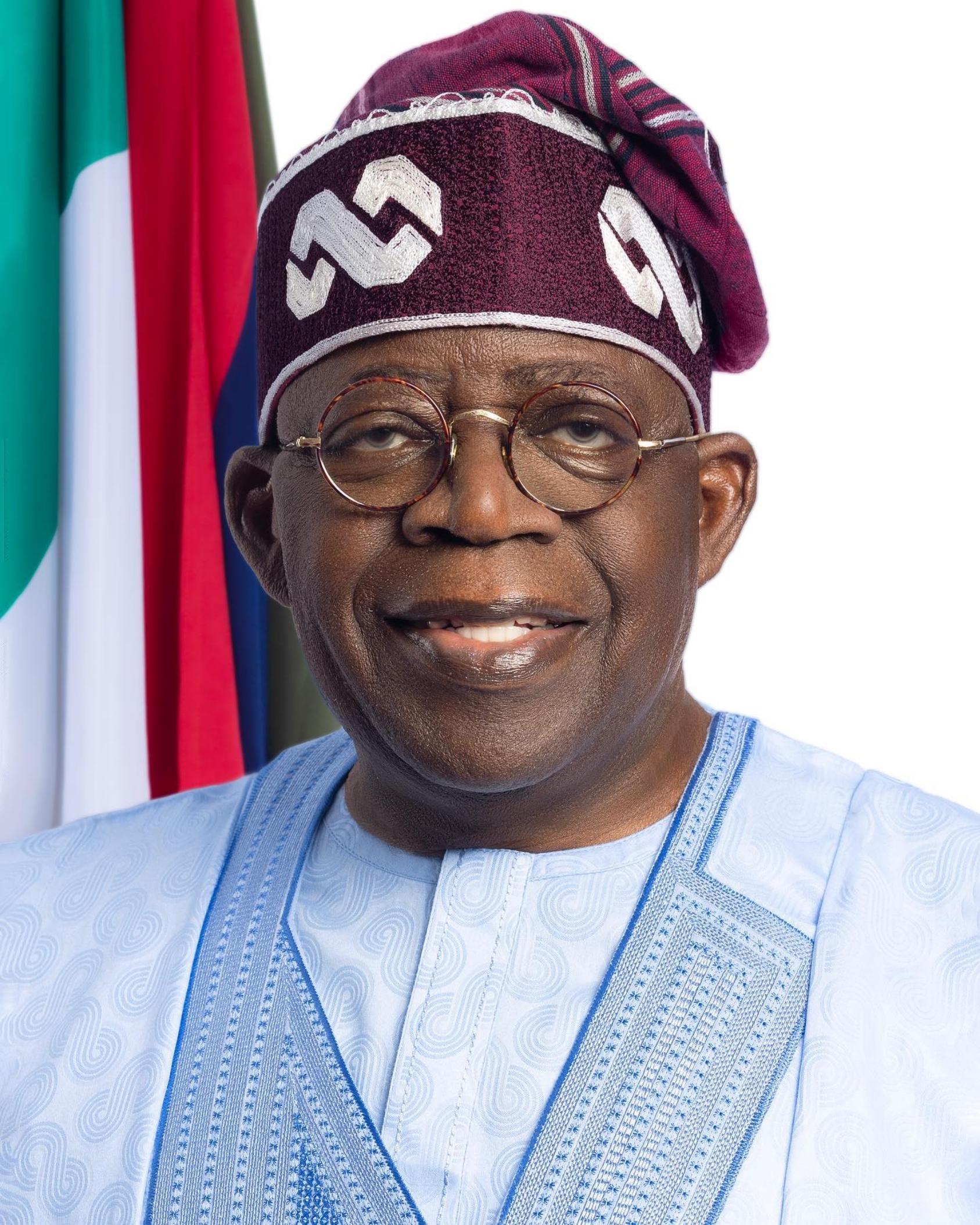
Nigeria’s Real Enemies
By Abiodun KOMOLAFE
“Then I said to them, ‘You see the trouble we are in: Jerusalem lies in ruins, and its gates have been burned with fire. Come, let us rebuild the wall of Jerusalem, and we will no longer be in disgrace.’”
Nehemiah 2:17
The belief in some quarters is that the Bola Tinubu presidency is being confronted by two enemies: the cabals and the masses. Well, while Nigeria’s real enemies are the impenitent and chauvinistic cabals, fact remains that the masses have consistently been at the receiving end of successive governments’ bad policies and programmes.
Nigeria’s real enemies are the uncaring and insensitive political establishment who brazenly misinterpret socioeconomic brass tacks. They comprise the conflict merchants who recklessly expand our national frontlines of political and economic inclinations; those who will never agree to changes that can help stop the masses from being perpetually at their doorsteps; and those who won’t allow the sacrifices of our military and paramilitary officers at ending terrorism, banditry and other criminalities to yield any dividend. They’re in the forces. They are also in the bureaucracy. Complacency is their watchword, inconsistency is their middle name. And it’s as if the masses’ complexion was wrong at birth. So, it’s time the Tinubu presidency realized that ‘peace begins with a smile’. It’s time it appealed to the conscience of the masses because, truth be said, they are the offended-yet-the-forgotten lot.
Read Also:Gov. Uba Sani says newly-unveiled ShopRite in Kaduna will provide economic opportunities
Going through Tinubu’s agenda, one could see how laudable they sounded. But would they ever work under Nigeria’s present situation? With her ‘do-or-die’ condition, one doubts if her real enemies are taking a ‘yes’ for an answer. Anyway, Nigerians won’t be surprised if they have also penetrated the freshly-delivered Tinubu administration. If they have, will it be possible to get them exposed and out of the way? Former Presidents Olusegun Obasanjo and Goodluck Jonathan, even Muhammadu Buhari knew them! Till Buhari left office, he never dared to reveal the sponsors of Boko Haram as he once promised. Jonathan only confessed that Boko Haram members were in his government; but he never named or exposed them till he left office. A section of Nigerians were also of the belief that Yemi Osinbajo almost paid with his life in 2019, for daring to ‘touch the untouchables’ during his short period as Acting President. Is it any wonder that he never said or did anything so spectacular until the Buhari presidency expired?
When the president announced a review of the N8,000.00 conditional cash transfer to ‘the poorest of the poor’, Nigerians had thought that it was going to be rechanneled to other areas like refineries refurbishment, agriculture, job creation and production activities. Little did they know that it would only be moved from the National Social Register to the states! Apart from what looks like taking the programme from pickpockets and giving it to known highway armed robbers, it is bound to compound and complicate the country’s inflation rates, given the fact that the shared money will at the end of the day patronize the same market, at the same time, without adding to the corresponding volume of goods and services in the same market, at same time. The bureaucracy is also there, with its business-as-usual disposition; and society continues to behave as if nothing is happening!
As the president has decided to take the bull by the horn, he must be wary of the manipulator-leaders in his government. Though not up to 5% of Nigeria’s population, they possess the power to decide what happens to the remaining 95% of the population. The Sanballats and Tobiahs who would always benefit from the fall of the walls and the temple of Jerusalem are within; and they are always lurking around the corridors of power. Behind their gestures, they always have hidden agenda. Sanballat advised Nehemiah to run away from the war but Nehemiah refused. Instead, ‘this feeble Jew’ got approval from God to do the political and physical reconstruction of the walls. He led by example and the people supported him because of his sacrificial capabilities.
The story of Nehemiah is about the rebuilding of ancient Jerusalem’s walls. It is about the powerful story of triumphs “over great odds, the people’s renewal of faith”, their “overcoming of national shame and the reforming of their conduct.” It’s one unforgettable story of showing forth, not showing off; of breaking forth, not breaking down. Above all, it’s a fine study of leadership and giving up luxury in the palace for “hard labour in a politically insignificant district”. Nigeria’s case is not any different. For now, things are not getting better and Nigerians are hungry. They are also angry and, in some way, bitter! Nigeria is in the midst of trials of various kinds. The cry for development, security and employment opportunities is becoming loud and overwhelming. Poor accountability and lingering inability to manage the most critical components of the economy can only be likened to speaking from the gallery without having the practical experience of the situation on ground. Attempts at blocking oil theft and foreigners’ exploitation of Nigerians and their commonwealth could only be compared to Nehemiah’s fierce battles against the internal forces that fought him from all angles, and with all weapons.
Our religious bodies are not helping matters either. Beyond throwing punches in the air, what are their prescriptions for the problems confronting dear fatherland? Is God not talking to them again? Why are they so eager to share money? The situation has gone so bad that, if a politician decides to build his house on a river, our spiritual leaders will build a canoe to the place. If they can’t build it, they will go as far as contracting experts from Ilaje in Ondo State to help construct a road to get there. Of course, there are millions of Nigerians who will follow the political establishment into the lagoon. Unfortunately, when Nigeria was to be born as a country, nobody remembered or sought the involvement of God. We brought Him in later, as an aftermath! The colonialism that handed our freedom over to us was never based on godly considerations. So, putting God at the centre of our dealings was hypocritical. Ahmadu Bello had his own agenda. Ditto for Obafemi Awolowo and Nnamdi Azikiwe. So, nobody made any attempt to reconcile Nigeria’s ethnic nationalities through God. Who even knows if that’s the source of our predicament? After all, ‘if the foundation be destroyed, what can the righteous do?’
Like Nehemiah, Tinubu must possess the inner eyes and the magic wand to decipher the hidden agenda of Nigeria’s real enemies in the corridors of power because their antics are beyond what ordinary eyes can see or glean. Nehemiah had opposition from legitimate enemies as well as the people he was leading. Occasionally, the people were also discouraged and almost hopeless. However, his story shows that God blesses the work of those who work diligently and devotedly. He did ordinary tasks that brought great pleasure to God. Likewise, Tinubu can help bring Nigeria up out of the mess in which she is presently immersed. But then, how will he overcome the ancient pitfalls of putting Sanballats and Tobiahs in charge of his laudable visions to rebuild Nigeria’s dilapidated walls? How will the president secure the buy-in of men and women in the mould of the late Dora Akunyili: men and women with the hearts of sacrifice and fearlessness; men and women ‘who have honour’; men and women ‘who will not lie’?
May the Lamb of God, who takes away the sin of the world, grant us peace in Nigeria!
*KOMOLAFE writes in from Ijebu-Jesa, Osun State, Nigeria (ijebujesa@yahoo.co.uk)
Nigeria’s Real Enemies
-

 Education10 months ago
Education10 months agoMathematics Teacher Reportedly Stung By Bee While Preparing Students For Exam
-

 Health3 days ago
Health3 days agoOnly 58,000 doctors renewed licence out of 130,000 registered doctors – MDCN
-

 Politics5 days ago
Politics5 days agoAPC IN A FIX AS GOVERNORSHIP ASPIRANTS REJECT THE ONDO STATE PRIMARY ELECTION RESULTS
-
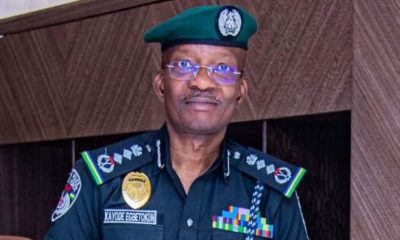
 Defence & Security3 days ago
Defence & Security3 days agoMan begs I-G to assist in locating missing police wife
-

 Sports2 days ago
Sports2 days agoAsaba to host Wheelchair Basketball Atlantic Conference League
-

 News3 days ago
News3 days agoKiev evacuates 2 hospitals amid fears of possible Russian attack
-

 Defence & Security6 days ago
Defence & Security6 days agoHow NSCDC Rescues 10 Suspected Victims of Human Trafficking in Abuja
-
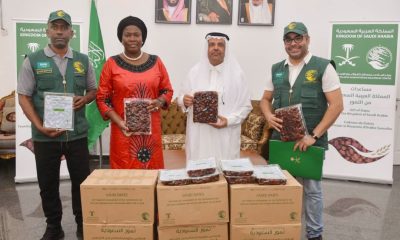
 News3 days ago
News3 days agoSaudi govt. donates 50 tonnes of dates to FG


